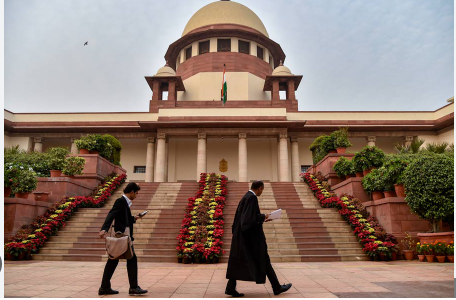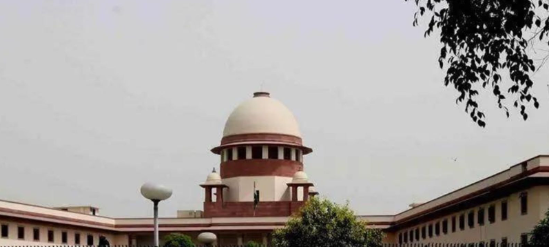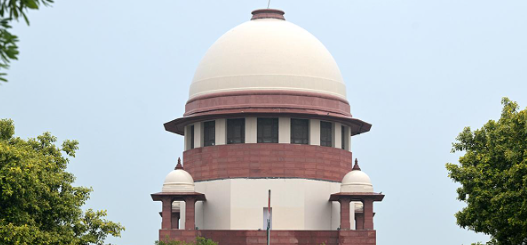PIL in Supreme Court A Public Interest Litigation (PIL) has been filed in the Supreme Court of India, seeking an urgent directive to the central government to halt the export of arms and military equipment to Israel. The plea, which raises significant legal and ethical questions, argues that the continued supply of military goods to Israel by Indian companies, including a public sector enterprise under the Ministry of Defence (MoD), is in violation of India’s obligations under international law. This PIL has sparked a debate not only about India’s foreign policy and defense trade practices but also about the country’s commitment to human rights and international peace.
PIL in Supreme Court Background: India-Israel Defense Relations
India and Israel have shared a close defense relationship for decades, with Israel being one of the largest suppliers of military technology and equipment to India. The bilateral defense trade between the two nations includes a wide range of military hardware, such as missile systems, drones, radar technology, and other advanced weaponry. In recent years, India has also emerged as a significant exporter of military equipment, including to Israel, as part of its broader strategy to become a global defense supplier.
This defense cooperation has been seen as mutually beneficial, with Israel providing India with cutting-edge technology and India contributing to Israel’s defense capabilities through the supply of military goods. However, this relationship has also drawn criticism, particularly in the context of Israel’s ongoing conflict with Palestine and its military actions in the region.
PIL in Supreme Court : Legal and Ethical Grounds
The PIL filed in the Supreme Court challenges the legality and morality of India’s export of arms and military equipment to Israel. The petitioners argue that these exports violate India’s obligations under various international treaties and conventions, including the Arms Trade Treaty (ATT), to which India is a signatory. The ATT regulates the international trade in conventional arms and seeks to prevent the transfer of weapons that could be used to commit war crimes, genocide, or other serious violations of human rights.
The plea points out that Israel’s military actions in the occupied Palestinian territories have been widely condemned by the international community, with numerous reports of human rights violations, including the targeting of civilians, disproportionate use of force, and the destruction of civilian infrastructure. The petitioners contend that by continuing to supply arms and military equipment to Israel, India is complicit in these violations and is undermining its commitment to upholding international law and human rights.
Moreover, the PIL highlights the fact that one of the entities involved in the export of military equipment to Israel is a public sector enterprise under the MoD. This, according to the petitioners, raises serious questions about the Indian government’s role in facilitating these exports and its adherence to its constitutional obligations to promote peace and security.
International Law and India’s Obligations
India’s obligations under international law form a crucial part of the arguments presented in the PIL. The Arms Trade Treaty (ATT), which India signed in 2013, aims to regulate the international trade of conventional arms and to prevent their diversion to illicit markets or for use in committing human rights abuses. While India has not ratified the treaty, its status as a signatory still imposes certain responsibilities, including refraining from actions that would defeat the object and purpose of the treaty.
The PIL argues that the continued export of arms to Israel, given the latter’s ongoing military operations and allegations of human rights abuses, is in direct conflict with the principles enshrined in the ATT. The treaty obliges states to assess the potential for exported arms to be used in the commission of serious violations of international humanitarian law and to take appropriate measures to prevent such outcomes.
In addition to the ATT, the petitioners also reference other international instruments, such as the Geneva Conventions, which outline the rules of warfare and the protection of civilians during armed conflicts. The alleged use of Indian-supplied military equipment in actions that may violate these conventions is cited as a further reason for halting arms exports to Israel.  for more information click on this link
for more information click on this link
The Government’s Stance: Strategic and Diplomatic Considerations
The Indian government has historically maintained that its defense relations with Israel are based on strategic and security considerations, PIL in Supreme Court rather than any endorsement of Israel’s domestic or foreign policies. India has consistently argued that its defense exports are conducted in accordance with national and international laws, and that the end use of the exported equipment is monitored to ensure compliance with India’s commitments.
From a diplomatic perspective ,PIL in Supreme Court India’s relationship with Israel is part of a broader strategy to diversify its defense partnerships and reduce dependence on any single supplier. Israel’s expertise in areas such as missile defense, cyber security, and counter-terrorism has been particularly valuable to India, given the security challenges it faces in its neighborhood.
The Indian government is likely to argue that halting defense exports to Israel could jeopardize this important strategic relationship and undermine India’s own security interests. Furthermore, the government may contend that the decision to export arms is a matter of national sovereignty and that the PIL in Supreme Court, by seeking judicial intervention in foreign policy, is overstepping the bounds of the judiciary’s role.
Ethical and Humanitarian Concerns
The ethical and humanitarian concerns raised by the PIL in Supreme Court cannot be overlooked. The ongoing conflict between Israel and Palestine has resulted in significant loss of life and suffering, particularly among Palestinian civilians. Numerous international organizations, including the United Nations, have documented alleged violations of human rights and international humanitarian law by both sides, with Israel often being criticized for its actions in the occupied territories.
For many, the idea that Indian-made weapons could be used in these conflicts is deeply troubling. The petitioners argue that India, as a nation with a long-standing commitment to non-alignment and peaceful resolution of conflicts, has a moral responsibility to ensure that its arms exports do not contribute to further violence and human suffering.
This ethical argument is also linked to India’s historical role as a leader in the Global South and its advocacy for the rights of oppressed peoples around the world. The petitioners suggest that by continuing to supply arms to Israel, India risks undermining its credibility as a champion of human rights and justice on the global stage.  for more information click on this link
for more information click on this link
The Role of the Judiciary: Balancing National Interests and International Obligations
The PIL presents the Supreme Court with a complex challenge: how to balance India’s strategic and national interests with its international legal obligations and ethical responsibilities. The judiciary’s role in adjudicating matters of foreign policy is inherently limited, given that such decisions typically fall within the purview of the executive branch. However, the Supreme Court has, in the past, intervened in cases where fundamental rights or constitutional principles were at stake.
In this case, the petitioners are likely to argue that the export of arms to Israel has broader implications for India’s adherence to international law and its commitment to human rights, both of which are embedded in the Constitution. They may also point to the principle of judicial review, which allows the courts to examine the legality and constitutionality of executive actions, including those related to foreign policy.
At the same time, the government is likely to emphasize the need for judicial restraint in matters of national security and foreign relations, where the executive possesses the requisite expertise and authority. The court’s decision will need to carefully navigate these competing considerations, ensuring that India’s national interests are safeguarded while also upholding its international commitments.
Potential Outcomes and Implications
The Supreme Court’s ruling on this PIL could have far-reaching implications for India’s defense policy and its international relations. If the court were to issue a directive halting arms exports to Israel, it would mark a significant shift in India’s foreign policy and could strain relations with a key strategic partner. Such a decision could also set a precedent for judicial intervention in other aspects of defense and foreign policy, potentially leading to further legal challenges in the future.
On the other hand, if the court dismisses the PIL, it would reaffirm the executive’s authority in matters of foreign policy and defense, while potentially raising questions about India’s commitment to international law and human rights. Such an outcome could also lead to increased scrutiny of India’s defense exports and pressure from human rights organizations to ensure greater transparency and accountability.
Regardless of the outcome, the case highlights the growing intersection of international law, ethics, and national policy in an increasingly interconnected world. It also underscores the importance of ensuring that India’s defense policies are aligned with its broader commitments to peace, security, and human rights.  for more information click on this link
for more information click on this link
Conclusion: A Critical Moment for India’s Defense Policy
The PIL in Supreme Court seeking a halt to the export of arms and military equipment to Israel presents the Supreme Court with a critical opportunity to address the complex legal and ethical issues at the heart of India’s defense policy. As the court deliberates on this matter, it must carefully consider the implications of its decision for India’s strategic interests, its international obligations, and its moral standing on the global stage.
This case serves as a reminder of the need for constant vigilance and accountability in the conduct of international relations, particularly when it comes to issues as sensitive as arms exports and military cooperation. It also highlights the ongoing debate within India about the role of the judiciary in shaping foreign policy and the importance of ensuring that all aspects of national policy are consistent with the country’s values and commitments.
In the end, the outcome of this PIL in Supreme Court will not only impact India’s relationship with Israel but will also set a precedent for how the country navigates the delicate balance between national interests and its responsibilities as a member of the interna ALSO READ:- Four Indian Nationals Killed in Tragic Multiple-Vehicle Road Accident in Texas 2024




